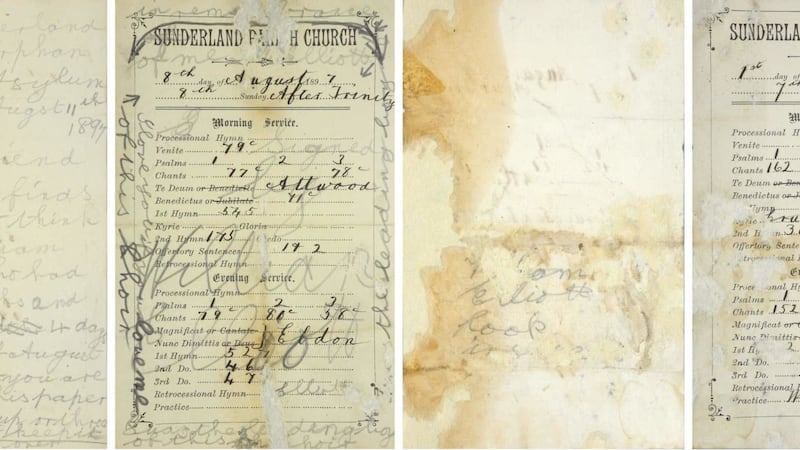A hidden message from an orphanage choirboy pleading not to be forgotten has been found after it lay undisturbed in a church pew for 125 years.
The letter by 13-year-old William Elliott was written on August 11 1897 on the back of a chorister’s order of service at Sunderland Parish Church.
Work was carried out during lockdown to restore the Grade I Georgian listed building into an event space called Seventeen Nineteen, and that was when the note was discovered.

Conservationists worked on the paper to remove decades of dust, grime and polish so the words could be deciphered.
William wrote in pencil: “Dear friend, whoever finds this paper think of William Elliott who had two months and two weeks and four days on the 11 of August 1897.
“Whoever you are that finds this paper don’t tear it up or throw it away … keep it in remembrance of me, W Elliott … I was the leading boy of this choir …
“I love you if you love me.”
Research by Seventeen Nineteen volunteers revealed William’s father was chief officer Thomas Duncan Elliott who was sailing on the vessel Skyros when he was washed overboard in 1887.

William’s mother Sarah Ann Elliott was left a widow with four children and, although the family had been fairly comfortable until then, by 1891 she was working as a dressmaker to keep the family afloat.
William was eligible for admittance to the orphanage after his father’s death and was ultimately accepted the following year.
He was discharged on October 29 1897, his 14th birthday – just weeks after he wrote his letter.
He avoided going to sea, unlike many of the other boys at the orphanage, and worked for a local solicitor after leaving.
After 1901, the trail grows cold and nothing more can be found of William.
But next to the framed copy of his letter, which hangs in the church’s Lady Chapel next to the very seat in which the boy composed it, is a wooden plaque commemorating the dead of the Great War.
And, listed among the dozens of names of the parish’s fallen men and boys, is an individual with the same name but different spelling – W Elliot.
His plea to be remembered has inspired Seventeen Nineteen to launch The Dear Friend project, inviting anyone who wishes to, to write a letter back to William.
Centre manager Tracey Mienie said: “His letter has touched us all.
“He was clearly very aware that his time at the orphanage, and in the choir, was ending and I think apprehension at what his future may hold comes across in his words.”








